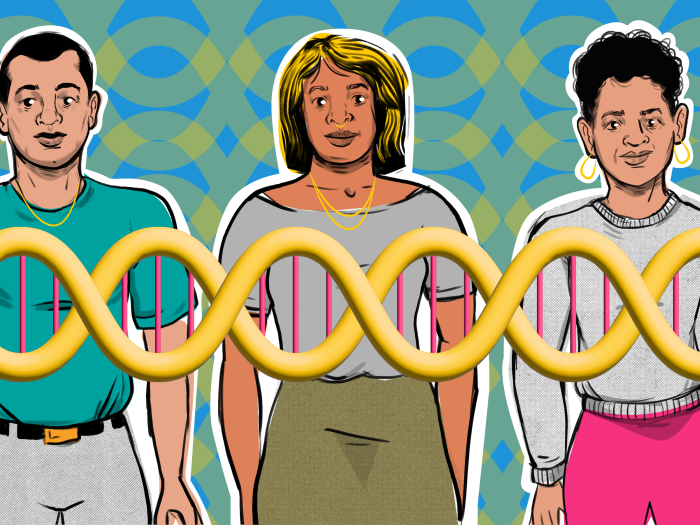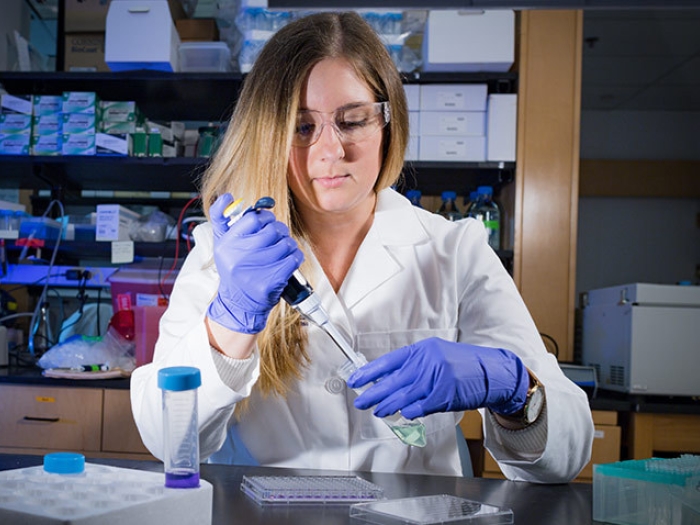Back to Genetic Medicine
-
Allergy & Clinical Immunology -
Cardiovascular Medicine -
Gastroenterology & Hepatology -
General Medicine -
Genetic Medicine -
Geriatric & Palliative Medicine -
Hematology & Oncology -
Hospital Medicine -
Infectious Diseases -
Metabolism, Endocrinology & Diabetes -
Nephrology -
Pulmonary & Critical Care Medicine -
Rheumatology

The U-M Medical School Department of Internal Medicine Division of Genetic Medicine faculty members conduct research in highly diverse areas including:
- Cancer genetics
- Inherited hematologic disorders
- Neural stem cells
- Mechanisms and regulation of DNA repair processes in mammalian cells
- Predictive genetic testing
- Mechanisms controlled by Hox genes
- Birth defects
- Bleeding and thrombotic disorders
- Human limb malformations
To address these important questions, researchers employ a plethora of experimental approaches including epidemiology, proteomics, genomics, bioinformatics, human disease models and cellular studies.
- Sally A. Camper, PhD
The overarching goal of our research is to understand the causes of birth defects, including the genes involved and the mechanisms of pathological manifestations, to develop molecular diagnostics, and explore treatment efficacy. - Tobi Else, MD
Research in our lab aims to find inherited genetic causes of common and rare adrenal and endocrine diseases. - David Ginsburg, MD
We study the genetics of blood clotting, the structure and function of key blood clotting proteins, and the processes regulating the cellular secretion of blood clotting and other proteins. - Cheng-yu Lee, PhD
We study the mechanisms of neural stem cell self-renewal and differentiation, which have implications for neurological disorders and cancer. - Goutham Narla, MD, PhD
Our lab is interested in understanding the molecular processes that underlie the genesis and progression of human tumors. - Stephen J. Weiss, MD
Our laboratory focuses on the characterization of both the proteolytic enzymes and the transcriptional programs that control extracellular matrix remodeling during growth and development, inflammation and cancer.
Genetic Medicine Research
Learn more about the Division of Genetic Medicine research.

Health Lab
A variety of factors affect the barriers that patients with cancer foresee to undergoing genetic testing, researchers found, but the issues that motivate patients to actually follow through with genetic testing remain unclear.

Health Lab
A common mutation in a rare cancer subtype leads researchers to an already-approved drug that shows promise against uterine serous carcinoma

Health Lab
Researchers have made strides toward targeting cancer in a new way. Through a collaboration between institutions and various scientific disciplines, scientists found a new way to attack a previously undruggable tumor suppressor.